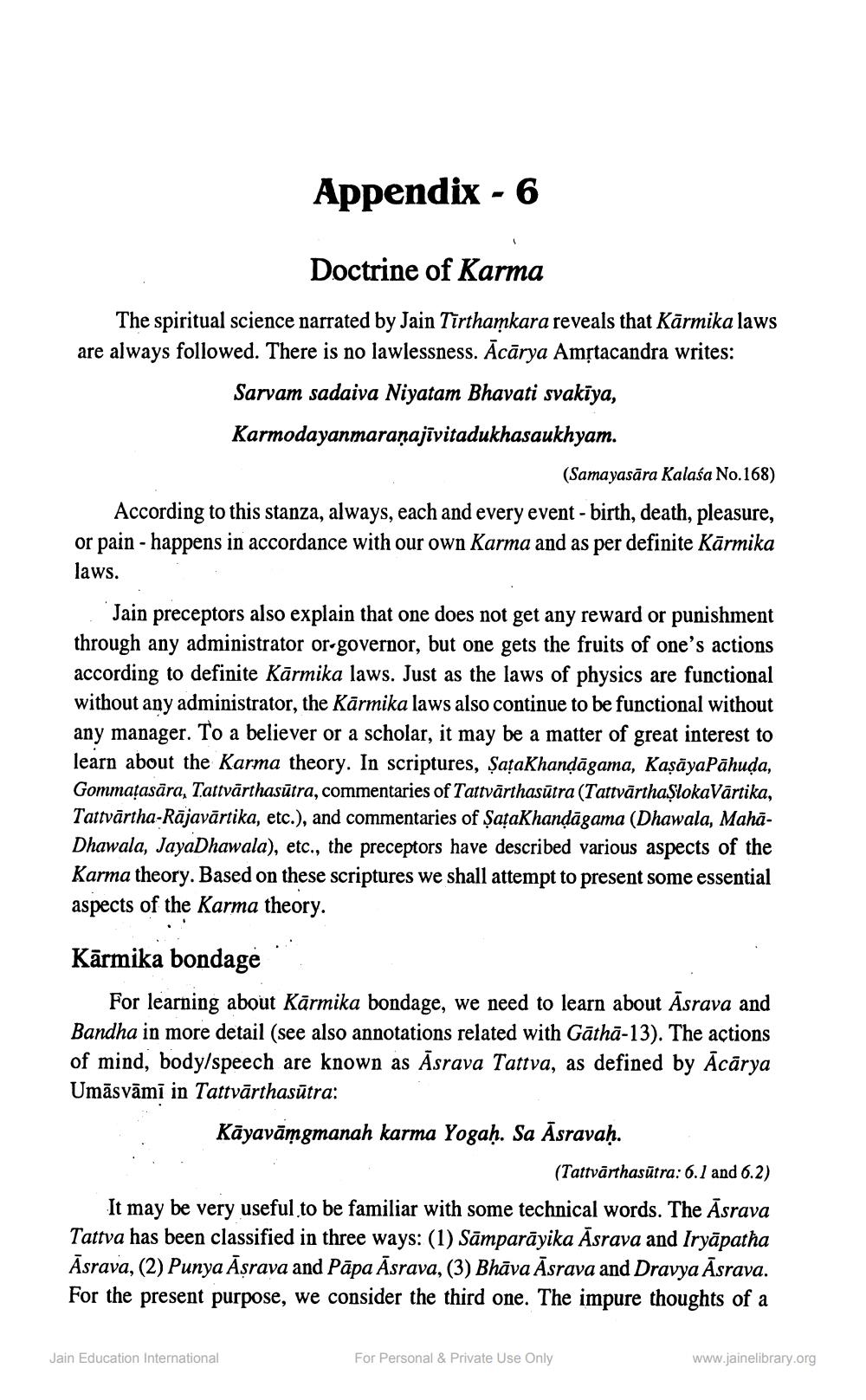________________
Appendix - 6
Doctrine of Karma
The spiritual science narrated by Jain Tirthamkara reveals that Kārmika laws are always followed. There is no lawlessness. Ācārya Amstacandra writes:
Sarvam sadaiva Niyatam Bhavati svakīya, Karmodayanmaraṇajīvitadukhasaukhyam.
(Samayasāra Kalaśa No.168) According to this stanza, always, each and every event - birth, death, pleasure, or pain - happens in accordance with our own Karma and as per definite Kārmika laws.
Jain preceptors also explain that one does not get any reward or punishment through any administrator or-governor, but one gets the fruits of one's actions according to definite Kārmika laws. Just as the laws of physics are functional without any administrator, the Kārmika laws also continue to be functional without any manager. To a believer or a scholar, it may be a matter of great interest to learn about the Karma theory. In scriptures, Satakhandāgama, Kaşāyapāhuda, Gommațasāra, Tattvārthasūtra, commentaries of Tattvārthasūtra (TattvārthaşlokaVārtika, Tattvārtha-Rājavārtika, etc.), and commentaries of ŞațaKhandāgama (Dhawala, MahāDhawala, JayaDhawala), etc., the preceptors have described various aspects of the Karma theory. Based on these scriptures we shall attempt to present some essential aspects of the Karma theory.
Kārmika bondage
For learning about Kārmika bondage, we need to learn about Āsrava and Bandha in more detail (see also annotations related with Gāthā-13). The actions of mind, body/speech are known as Asrava Tattva, as defined by Ācārya Umāsvāmi in Tattvārthasūtra: Kāyavāmgmanah karma Yogaḥ. Sa Āsravaḥ.
(Tattvārthasūtra: 6.1 and 6.2) It may be very useful to be familiar with some technical words. The Asrava Tattva has been classified in three ways: (1) Sāmparāyika Āsrava and Iryāpatħa Āsrava, (2) Punya Āșrava and Pāpa Asrava, (3) Bhāva Āsrava and Dravya Āsrava. For the present purpose, we consider the third one. The impure thoughts of a
Jain Education International
For Personal & Private Use Only
www.jainelibrary.org




